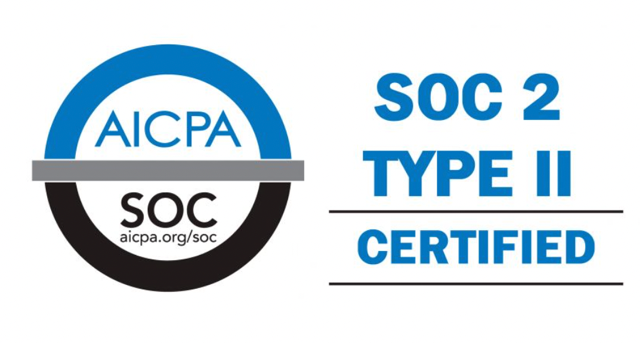
From 100 to 1 million Transfers: Scaling MFT for Enterprise Growth
From 100 to 1 million Transfers: Scaling MFT for Enterprise Growth Ever wondered what happens when your daily file transfers multiply by
“Pivot” has been the watchword since 2020. With it comes implications of a 180-degree shift – moving in a completely different direction and leaving the familiar, which has served us well, behind. Seemingly overnight:
Supply chains were also affected. Some companies experienced a massive surge in demand, while others experienced severe downturns. B2B infrastructure operating behind the scenes had to adapt to quickly changing workloads and agility became the key to resilience.
While we continue to see the statistic from 2015 that 85% of supply chain transactions are still managed through EDI, Gartner estimates that by 2023, over 50% of B2B transactions will be performed through real-time application programming interfaces (APIs).2 If they are both correct, then the industry is moving towards a hybrid model that includes legacy infrastructure and business formats working side by side with more modern transactional approaches. Obviously EDI will remain essential for batch processing of mission-critical transactions like financial documents and periodic updates. Yet, for net-new B2B use cases and time critical transactions, companies need more flexible trading approaches with partners. Approaches that blend usage of both EDI and APIs will lower the barrier to entry into the network, allow all participants to be up and running faster, and help with supply chain resiliency. We call this the hybrid B2B collaboration approach, which is essential to allow your enterprise to modernize and nuture new business opportunities while preserving existing trading partner relationships.
To continue to enable seamless B2B transactions and integration with partners and customers to keep supply chains moving forward, it’s clear that pivoting isn’t the answer; augmenting is. Augmenting the power of EDI integration with API capabilities within the same system helps to mitigate risk and capture new opportunities. Over a period of decades, EDI has facilitated frictionless commerce, helped eliminate manual paper processes, and delivered significant, persistent, and broad supply chain efficiencies through automation. APIs have emerged as a complementary way to further extend B2B transactions and this hybrid approach is ideally suited to drive additional business value in certain situations. Creating a separate isolated system just to manage B2B APIs creates gaps in the over all business process and value.
APIs figure prominently in almost every IT modernization project, a perpetual journey for every enterprise. Using APIs to connect directly to a transactional system, like an ERP system, makes the data transfer path simpler since the intermediary file transfer server and associated processes are eliminated. API-driven transactions also require fewer resources (storage, memory, compute) to manage the exchange of data, can be secured using a variety of encryption and authentication mechanisms, are simpler to set up and manage, and are faster to execute in real time.
The following are common industry use cases that illustrate the importance of APIs in supply chain-oriented business transactions.
APIs are designed to be readily and easily used with a variety of programming languages and automation tools, much more easily and flexibly than traditional file transfer protocols. Just about any HTTPenabled tool can invoke an API and process the results. So, the natural first inclination on how to leverage APIs is to use them directly.
Here are three things to know as you review your B2B integration strategy for supply chain resiliency with APIs.

Learn more about how supply chains are changing and with them the future of EDI.
Browse Categories
Share Blog Post

From 100 to 1 million Transfers: Scaling MFT for Enterprise Growth Ever wondered what happens when your daily file transfers multiply by

In today’s fast-paced world of data analytics and AI, optimizing your data infrastructure is key to unlocking valuable insights and driving innovation.

In today’s fast-paced world of data analytics and AI, optimizing your data infrastructure is key to unlocking valuable insights and driving innovation.
We are a forward-thinking technology services provider dedicated to driving innovation and transformation across industries.


| Cookie | Duration | Description |
|---|---|---|
| cookielawinfo-checkbox-analytics | 11 months | This cookie is set by GDPR Cookie Consent plugin. The cookie is used to store the user consent for the cookies in the category "Analytics". |
| cookielawinfo-checkbox-functional | 11 months | The cookie is set by GDPR cookie consent to record the user consent for the cookies in the category "Functional". |
| cookielawinfo-checkbox-necessary | 11 months | This cookie is set by GDPR Cookie Consent plugin. The cookies is used to store the user consent for the cookies in the category "Necessary". |
| cookielawinfo-checkbox-others | 11 months | This cookie is set by GDPR Cookie Consent plugin. The cookie is used to store the user consent for the cookies in the category "Other. |
| cookielawinfo-checkbox-performance | 11 months | This cookie is set by GDPR Cookie Consent plugin. The cookie is used to store the user consent for the cookies in the category "Performance". |
| viewed_cookie_policy | 11 months | The cookie is set by the GDPR Cookie Consent plugin and is used to store whether or not user has consented to the use of cookies. It does not store any personal data. |
Thank you for submitting your details.
For more information, Download the PDF.
Thank you for registering for the conference ! Our team will confirm your registration shortly.
Invite and share the event with your colleagues
IBM Partner Engagement Manager Standard is the right solution
addressing the following business challenges
IBM Partner Engagement Manager Standard is the right solution
addressing the following business challenges
IBM Partner Engagement Manager Standard is the right solution
addressing the following business challenges